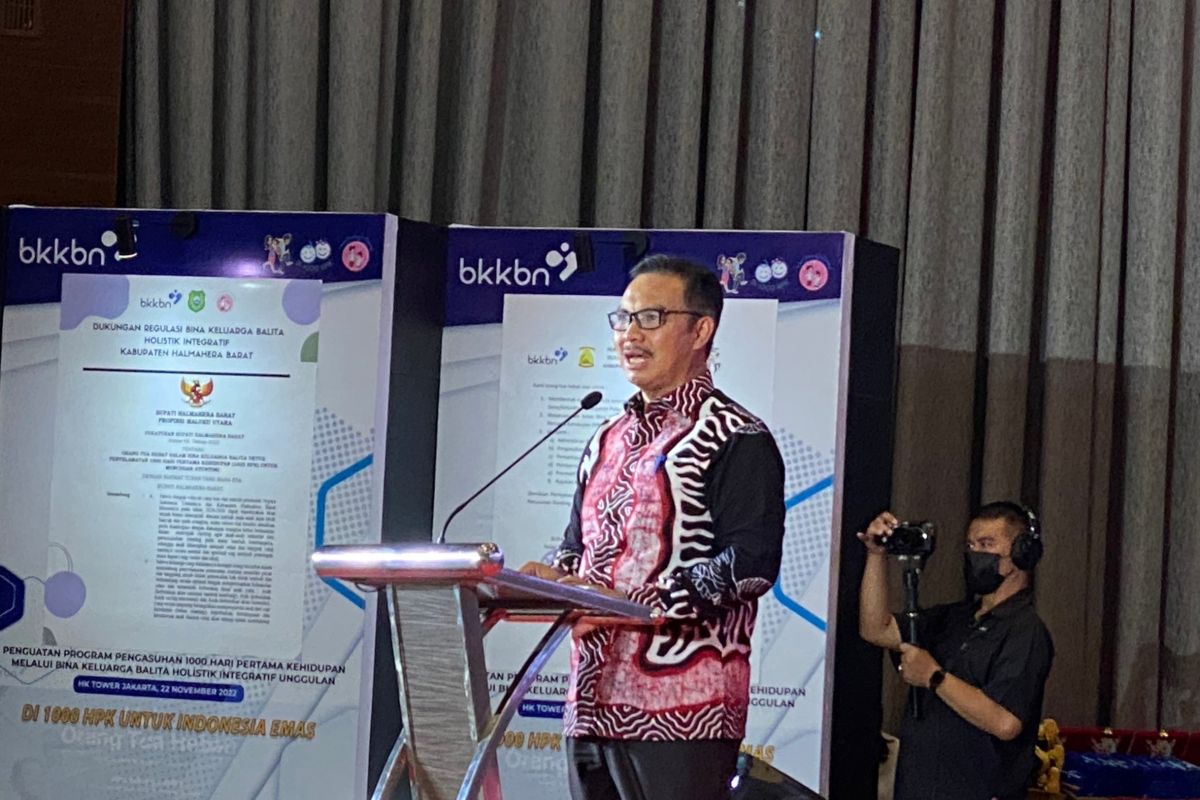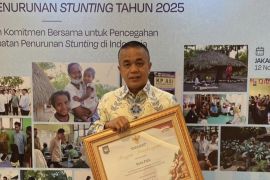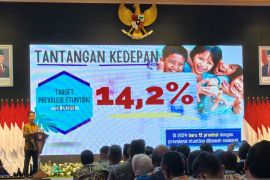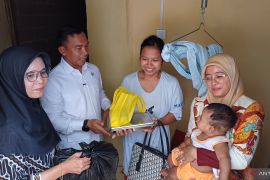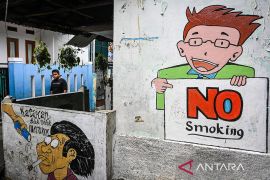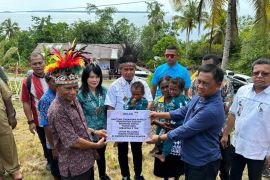"According to the 2019 Statistics Indonesia (BPS) projection, the biggest investment for us is in the hands of 31.6 percent or 84.4 million Indonesian children. This is quite a big amount," Head of the BKKBN Hasto Wardoyo said at the launch of the “Strengthening the First 1,000 Days of Life (HPK) Parenting Program” in Jakarta on Tuesday.
These 84.4 million children account for a third of the Indonesian population, he pointed out.
Health is the main requirement for children to achieve their dreams and aspirations and grow to be smart and cheerful, and thereby, help realize the Child-Friendly Indonesia 2030 and Golden Indonesia 2045 visions, Wardoyo added.
“For a country, the most valuable resources are not mining, oil, or natural gas. The most valuable resource for a country is its human resources. There is no developed country without quality human resources," he emphasized.
Therefore, all the capacities, potentials, and talents possessed by each child must be nurtured from an early age with supporting facilities provided by the government in terms of the use of technology and specific interventions.
"Increasing capacity and talent can be started from quality parenting in the family. The nurturing environment is one of the most important factors in the growth and development of children," he said.
Such efforts could include strengthening education related to good parenting, maintaining children's mental stability to prevent mental-emotional disorders whose prevalence, according to the 2018 Basic Health Research, has reached 9.8 percent, and preventing nutritional problems, such as stunting.
However, in the push for realizing the Golden Indonesia 2045 vision, the BKKBN cannot carry out all the interventions alone to reduce the prevalence of stunting which, based on the Indonesian nutritional status survey (SSGI) 2021, has reached 24.4 percent on average nationwide, Wardoyo said.
“It will require assistance, synergy, and collaboration from all ministries/agencies, including women's organizations, professional organizations, social organizations, academics, the business world, and the community to reduce stunting to 14 percent by 2024," he emphasized.
In the midst of an uncertain rainy season and disasters, he also invited all parties to remain vigilant and protect each child against stunting, including by maintaining the nutritional intake of all children at disaster locations as well as in other areas.
"Let us use this momentum to strengthen our commitment to ensuring that Indonesian children become healthier and free from stunting in the future," he said.
Related news: Having breakfast, limiting caffeine help prevent child stunting: BKKBN
Related news: Eight provinces experiencing population aging: BKKBN
Translator: Hreeloita Dharma S, Resinta S
Editor: Rahmad Nasution
Copyright © ANTARA 2022
